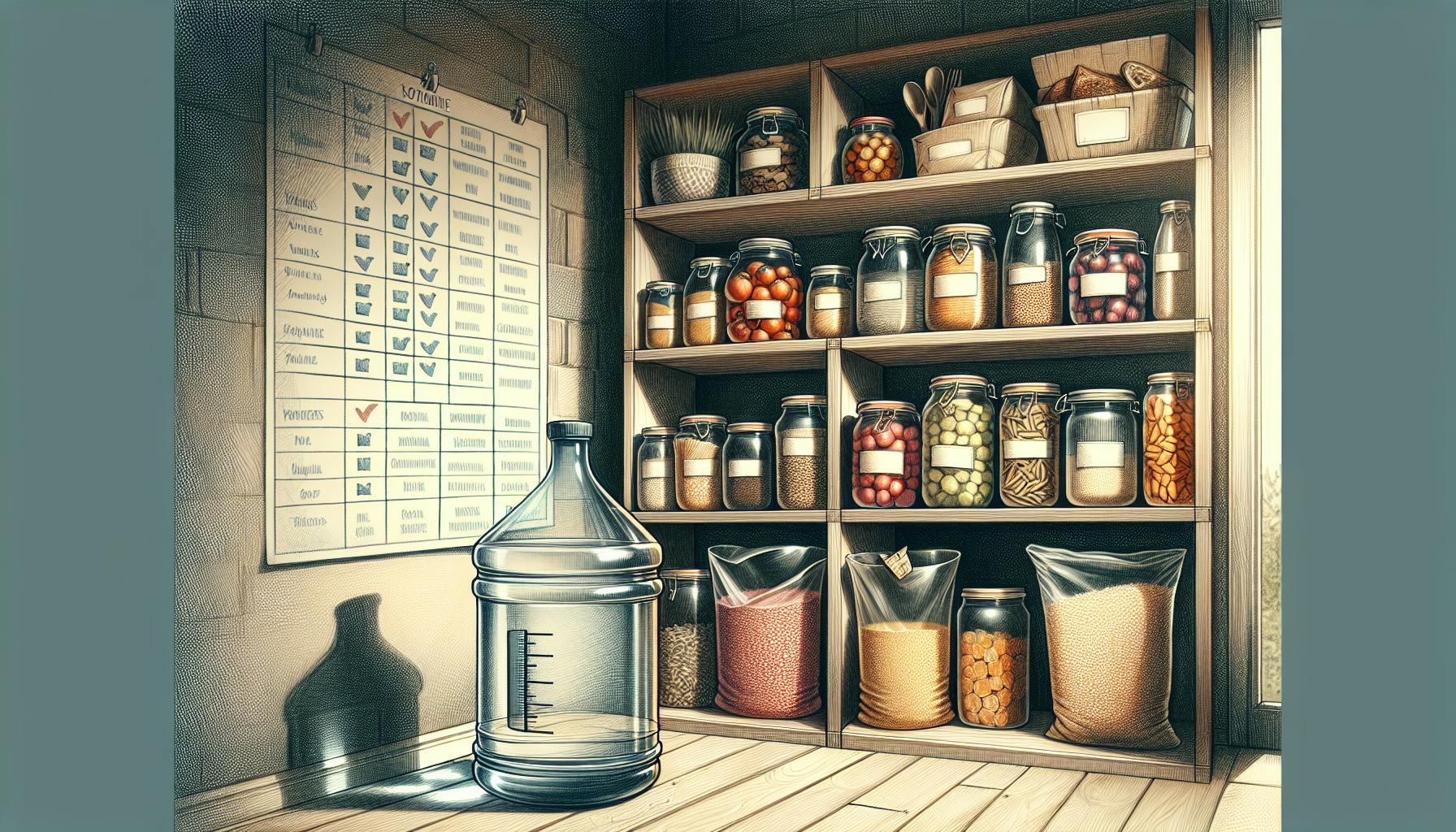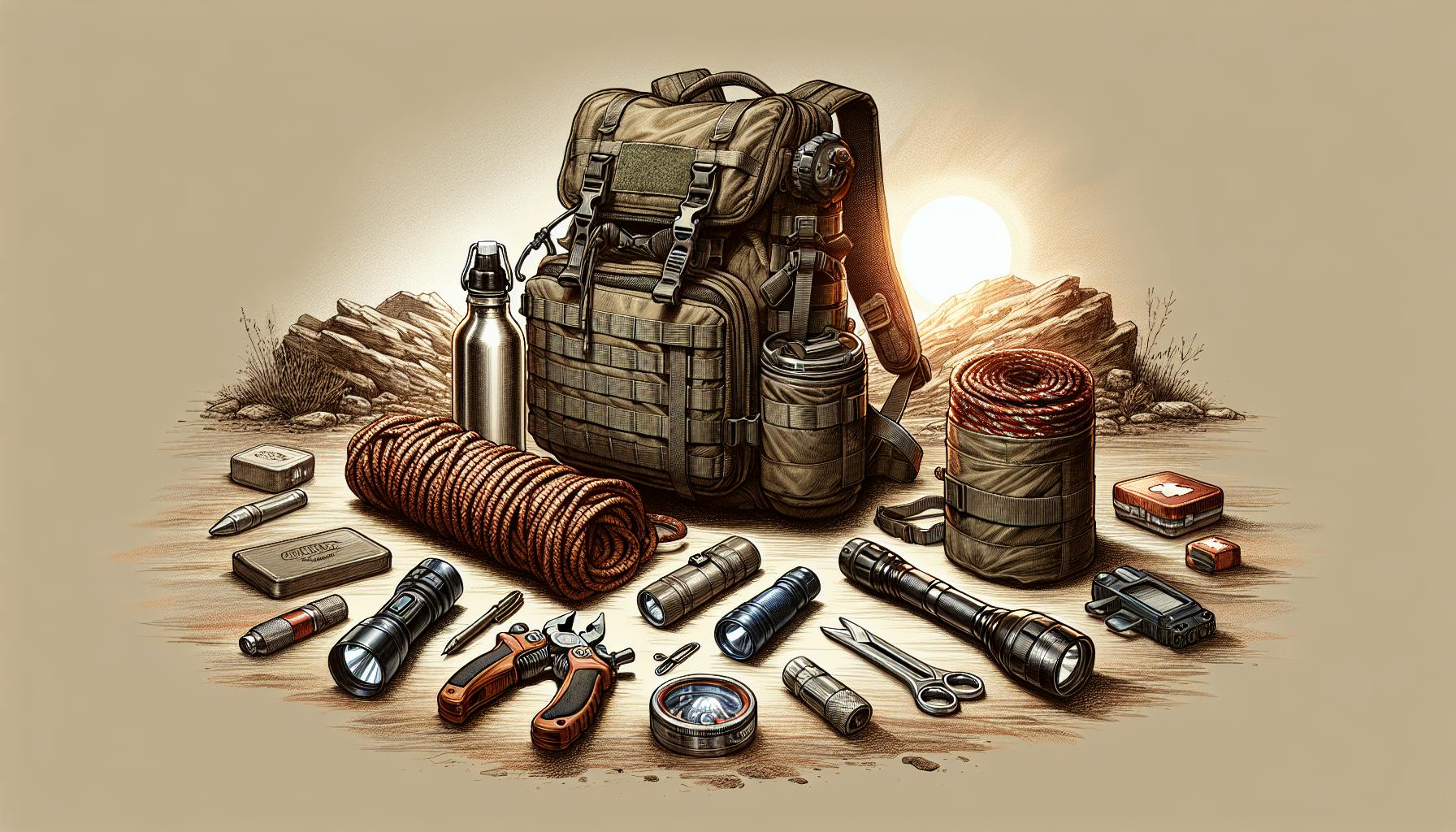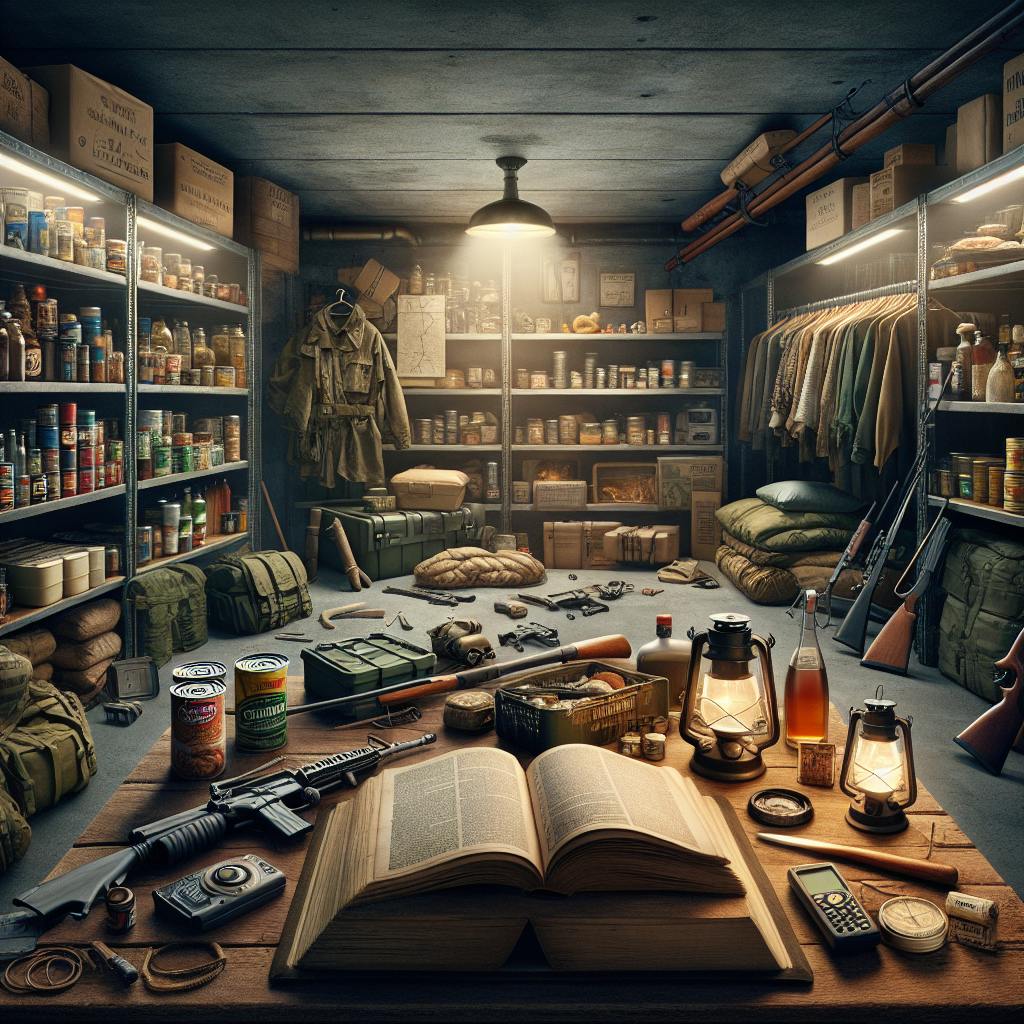Introduction to the Growing Prepper Movement
In recent years, the prepper movement has expanded rapidly across the United States and beyond. With rising political and economic uncertainties, more individuals and families are seeking self-reliance and preparedness in the event of both natural and man-made disasters. Preppers represent a diverse range of people but are united by key motivations - stockpiling emergency supplies, acquiring survival skills, and achieving independence to withstand catastrophes of all kinds. While often stereotyped, the prepper community encompasses people from all backgrounds who aim to ready themselves and their loved ones for uncertain futures.
As concerns over government overreach, resource scarcity, and dependency on modern infrastructure spread, the appeal of preparedness continues to grow. In fact, sales of emergency food, medical kits, and off-grid survival gear have skyrocketed in recent years. Mainstream retailers now carry "prepper" sections to meet burgeoning demand. Classes in homesteading, canning, and wilderness first aid are often booked months in advance. This rising interest reflects preppers' desire for the security and peace of mind that comes with self-reliance.
This article will explore the major categories of preppers based on their primary motivations, while noting significant diversity within the community. We'll also identify common tools and techniques used across the prepper spectrum. With smart preparation and training, prepping can enable anyone to face the unexpected with greater resilience.
Major Categories of Preppers
While preppers share key characteristics, several distinct types emerge based on their core ideologies and areas of focus:
Political Preppers
Political preppers prep in response to concerns about government overreach, infringement of freedoms, and over-reliance on the system. Their efforts focus on:
- Stockpiling ammunition, fuel, food rations, medicine, and other supplies
- Learning key skills like hunting, farming, carpentry, and mechanics to become more self-sufficient
- Living remotely "off-grid" and forming communes with those of similar values
- Reducing reliance on utilities, banks, transport, healthcare and other public services
With recent political polarization and uncertainty, this group continues to expand, driven by desires for independence and self-governance.
Practical Preppers
Practical preppers prioritize emergency preparedness for both natural disasters and societal disruptions. Their prepping centers around:
- Gathering medical supplies, non-perishable foods, water, tools and other basics
- Learning critical skills like first-aid, navigation, communication, and crisis psychology
- Assembling "bug out" bags ready for evacuation at a moment's notice
- Following current events closely to identify potential threats across the globe
By integrating preparedness into everyday routines, practical preppers aim to keep their families safe if calamity occurs.
Homesteading Preppers
Homesteading preppers strive for maximum self-sufficiency through traditional agricultural practices and home skills. Their prepping focuses on:
- Growing fruits and vegetables, raising livestock, canning, pickling and curing meats
- Learning heritage crafts like sewing, carpentry, animal husbandry, mechanics and hunting
- Producing their own water, fuel, electricity, and as much food as possible
- Embracing simple living and grit to sustain themselves without modern conveniences
These preppers take great pride in providing for their households using time-honored methods.
Urban Preppers
Urban preppers live in cities but tailor their prepping to metropolis conditions. Their efforts involve:
- Compact "bug out" bags, multi-tools, and mobile equipment for small spaces
- Learning skills like self-defense, scavenging supplies, urban hunting and foraging
- Cultivating close ties with community members for support
- Modifying standard prepper tools like water filters to work in an urban setting
With innovation and strong social bonds, these preppers overcome city constraints to stay prepared.
Peak Oil Preppers
Focused on resource depletion, "peak oil" preppers concentrate their prepping on:
- Stockpiling fuel sources like gasoline, diesel, propane, candles and batteries
- Owning equipment to produce biodiesel, ethanol, generators and renewable power
- Learning skills to manufacture fuel, process oil and refine solar/wind energy
- Achieving independence from unreliable electric grids
By reducing oil dependence, they prepare for the impacts of declining fossil fuel supplies.
Common Tools and Techniques
Despite differing ideologies, most preppers stockpile similar supplies and learn a core set of techniques:
- Food reserves like canned goods, bulk grains and freeze-dried meals lasting weeks or months
- A deep pantry of toiletries, OTC medications, sanitation and hygiene items
- Multiple forms of lighting including flashlights, lanterns, glow sticks and candles
- Tools for cooking, building, repairing and hunting without modern conveniences
- An extensive first aid kit with wound care, medicines, surgical tools and manuals
- Radios, ham radios, signal mirrors and whistles for communication
- Physical maps, orienteering and GPS devices for navigation
- Fortified, rural properties away from dense populations
- Methods to purify water through filters, chemicals and solar disinfection
- Firearms, pepper spray, martial arts training, and guard dogs for protection
Additionally, they cultivate grit, resourcefulness, and community to persevere when catastrophe strikes.
Getting Started with Prepping
For beginners, basic first steps include:
- Gathering essentials like first aid kits, flashlights, batteries, masks, multi-tools and emergency rations of non-perishable foods
- Learning fundamental skills like first aid, CPR, fire starting, radio operation and orienteering
- Joining online prepper communities to exchange ideas and guidance
- Gradually building stockpiles by allocating a portion per grocery trip or paycheck
- Identifying your household's unique vulnerabilities based on health needs, location, resources etc.
- Taking initial survival classes through local colleges or prepper organizations
- Assembling a versatile 72-hour "bug out" bag for evacuation scenarios
Building skills and supplies steadily over time allows preppers to integrate this lifestyle at a manageable pace.
Key Planning Considerations
The ideal prepping strategy depends on factors like:
- Household size, ages, incomes, health status, abilities and home size/layout
- Geographical location, local weather patterns, likely natural disasters
- Storing supplies efficiently without cluttering living spaces
- Balancing prepping with work, family activities and other obligations
- Limiting costs by finding deals, buying in bulk, DIY options and dual-purpose items
- Avoiding extremes by finding your own comfortable level of readiness
- Focusing on disasters most likely in your area like earthquakes, flooding etc.
- Joining local prepper groups to exchange ideas and build community
Assess your unique context and tailor prepping in a practical, sustainable way.
Tips for Urban Preppers with Limited Space
City preppers with small homes or apartments can optimize limited storage by:
- Storing food/water under beds, in closets, under furniture and under staircases
- Choosing compact emergency kits, "bug out" bags and multi-tools over bulkier options
- Filling empty wall space with mounted first aid kits, solar chargers, fire extinguishers and other gear
- Investing in collapsible, portable containers to store, transport water and supplies
- Sharing resources and storage space with nearby friends and relatives if possible
- Joining a food co-op or CSA to access fresh food if growing space is limited
- Canning and preserving seasonal produce to reduce storage space needed
With creativity and some compromises, urban preppers can achieve self-reliance.
Conclusion
While preppers have diverse backgrounds, they collectively hope to ready themselves and their families for uncertain futures. With some basic supplies, fundamental skills, and a pragmatic plan, prepping can provide anyone greater peace of mind to navigate life's surprises. By prepping wisely today, we can face tomorrow's unexpected events with calm, confidence and courage.


